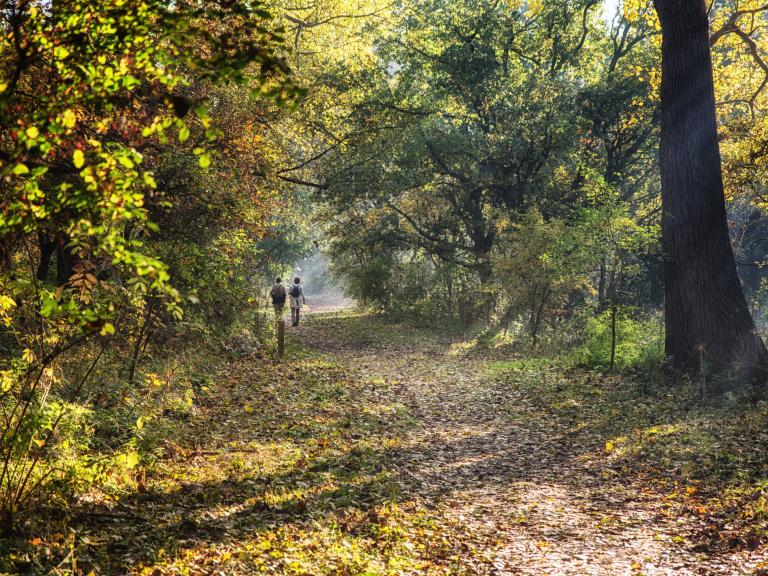-
Last updated on

© Shutterstock
What is biodiversity?
Biodiversity - also known as 'biological diversity' - is the umbrella term for the exceptional variety of life on earth, which can be found on three levels:
- The diversity of species: animals, plants, fungi, algae, bacteria, viruses...
- The diversity of genetic heritage (genes) within the same species, which gives rise to differences in shape, size, colour...
- The diversity of 'ecosystems' (different living environments such as forests, deserts, swamps, ponds, coral reefs, parks and cities), the species that live there and the ways they interact with each other.
Biodiversity is an immense source of wealth that is unfortunately under threat because of the considerable damage humans have caused to the earth and all its ecosystems by building houses and roads, farming, overfishing, polluting water, air and soil, …
Why is it important?
Maybe you are wondering why biodiversity loss is such a major source of concern. Does the exact number of butterfly or mammal species on earth really matter?
First of all, the problem is much more serious than the decline of only a few species: species are disappearing en masse, at an alarming rate. Scientists even call it the earth’s sixth mass extinction wave. The fifth, which saw the end of the dinosaurs, goes back a long time.
Furthermore, all living creatures form an intricate web in which all species have become highly dependent on each other after hundreds of thousands of years of evolution. It only takes a few missing links to impact part of the web of life.
Fortunately, greater biodiversity makes the web more resilient. In other words, greater biodiversity gives the web of life sufficient reserves to restore itself and continue to function normally, even after disruptions. Some changes, however, such as a natural disaster or the climate crisis, are too radical. The latest global report on biodiversity even mentions fears over the collapse of entire ecosystems.
Animals and plants are threatened on a large scale, a serious matter in itself. But the problem does not stop there, both humanity and the planet depend on biodiversity for their survival. We mainly distinguish four services that ecosystems provide to us:

Biodiversity provides, among other things, medicinal herbs. © Shutterstock
Provisioning services
Biodiversity provides various raw materials. Forests, for instance, are a source of food, fibres (paper, textiles, etc.), energy, clean water, genetic material, ingredients for medicines and cosmetics, building materials, etc.
Regulating services
Biodiversity regulates the climate and the water cycle, purifies water and air, breaks down organic waste, pollinates plants, spreads seeds, protects against diseases, etc.
The regulating services have an economic aspect to them as well: three quarters of our food crops depend entirely or partly on pollination by natural pollinators - especially insects - to form edible fruits or seeds. Think of cherries, apples, mangos, avocados, courgettes, sunflower oil, mustard...

Biodiversity plays a role in tourism and leisure. © iStock
Cultural, social and recreational services
Biodiversity plays a role in social relations, aesthetic values, tourism and leisure, while spending time in nature helps people cope with depression. It is also a source of cultural identity.
Supporting services
These are the services that make the other services possible. Without these services, the others would not exist: photosynthesis and (atmospheric) oxygen production, water cycle, nutritional elements, bio-geochemical components and soil formation, protection and enrichment.
In short, although biodiversity is often underestimated, it is vital to our existence. Do you also want to contribute to maintaining and restoring the earth’s biodiversity? Then read 12 tips for combatting climate change.
More on Planet

François-Xavier de Donnea: ‘The forests of the Congo Basin are threatened’
The forests of the Congo Basin are rich in natural resources. However, they are threatened by high population growth and corrupt...

12 reasons why forests are important
Forests may not often be at the forefront of our minds, but they surely are of inestimable value. In fact they are crucial to be...

14 tips to prevent plastic pollution
Plastic threatens life on land and in the oceans. How can you make sure that much less or no plastic ends up in the environment?...
